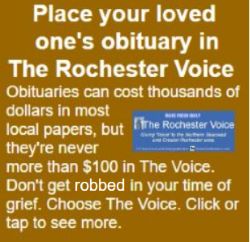Editor's note: This is one of a series of articles in The Lebanon Voice exploring the use of determinant codes in the dispatch of EMS providers and the challenges as well as benefits it can bring to the people of Maine.
KENNEBUNK, Maine - Kennebunk Fire Rescue Chief Jeffrey Rowe is one head of a Maine first responder unit who thinks determinant codes are the future of rescue services, that they will save lives and improve rescue delivery.
Rowe, who also serves on the state's Emergency Medical Services board, said, however, there are several hurdles to overcome before they'll likely become a statewide fixture.
Determinant codes begin in a dispatch center where a dispatcher asks a set of questions regarding a medical emergency that dictates a specific response with respect to what personnel and apparatus should be sent to a call and under what priority.
Rowe said even though they aren't being used by many Maine EMS providers, they are saving lives already, because while dispatch centers like Sanford Regional Dispatch don't broadcast the codes, their dispatchers continue to provide vital life-saving information on calls that come in after a rescue service is toned.
 |
| Jeffrey Rowe |
Right now, Rowe said it works like this: A 911 call comes into the dispatch center and after a few questions, a local EMS responder like Lebanon Fire and Rescue is sent to the scene with some basic info. Meanwhile, however, the dispatcher continues to talk to the caller going through determinant code protocols, which could include additional instructions to aid the victim.
However, the determinant code is not broadcast to an EMS service like Lebanon Fire and EMS. Why? Because Lebanon Fire and EMS - as well as the majority of EMS providers statewide - don't use the codes.
According to Drexel White, Maine's Emergency Medical Dispatch project manager, of the 26 9-1-1 dispatch centers across Maine, only about 8-10 are broadcasting the codes.
Meanwhile, the state of Maine has already purchased the determinant code software system that is being used by some now and is hoped to be in place statewide in the next few years.
White said so far the state EMS board has not mandated its use by local providers.
 Rowe said if they did, it would be an unfunded mandate as local EMS providers might have to spend some money to implement the system on their end.
Rowe said if they did, it would be an unfunded mandate as local EMS providers might have to spend some money to implement the system on their end.
For one thing, Rowe said individual departments would have to provide training on the codes, as well as the physical cards that bear the codes. Gregory Scott, an operations research analyst with the International Academy of Emergency Dispatch, whose Utah company produced the determinant codes system purchased by Maine, said last month that expense could be mitigated by using apps that could be viewed on any smartphone.
Rowe said the biggest expense might be that town rescue departments would have to have a medical services director appointed once a year to help them update and review the codes.
That medical services director would have to be a physician, Rowe said.
"There's no money behind that," Rowe said. "That would be a department expense. That would basically be an unfunded mandate if the state forced it on us."
He added that some departments who already use determinant codes have gotten doctors to volunteer their time, but it's still another concern.
For White, however, it's more of a culture factor than a money factor.
"We're trying to change the culture; we don't want to go lights and sirens whether it's a hangnail or a heart attack," he said on Tuesday. "But we would like to see it (the impetus to use determinant codes) come from EMS services."
He said to enable that his office provides awareness training, education and information about the use of determinant codes to EMS providers statewide.
He added that the state EMS board could force the usage of determinant codes, but they haven't in the past, though that could change, too.
"Politically, what we try to do is provide the education, and get services to say this is a good thing and a way to make better use of life support, automatic ALS (Advanced Life Support) for high level cases."
When asked in an email from The Lebanon Voice if Lebanon Fire and Rescue would be willing to use determinant codes, Chief Dan Meehan replied, "Sanford RCC is generating a determinant code on medical 9-1-1 calls, but is not (yet) broadcasting determinant codes as part of its dispatch to EMS services."
Meanwhile, Milton Fire Rescue Chief Nick Marique did not return phone calls.














